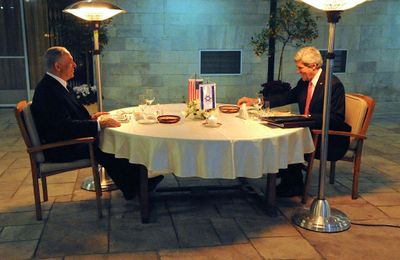One feature of the study and practice of law is that it can be curiously egalitarian. It does not matter how eminent a lawyer is, it comes down to what they write and what they do, and to whether that stands up to a close examination.
And so like some sciences and coding, it does not matter what is said about a thing, what matters is its actual substance. Just as a cat can look at a king, a good piece of work by an obscure junior lawyer is superior to a less good piece of work by a famous senior lawyer.
As such, it does not matter how “distinguished” the author of a legal advice is: the substance of the opinion is the thing. Indeed, as a general rule, the more emphasis placed on how “distinguished” a lawyer is, the more their work should be looked at with anxious scrutiny.
A couple of weeks ago a letter signed by many distinguished lawyers was published. The text of the letter is here, and it should be read carefully. For what really distinguishes this letter is what it does not say, and what it does say.
The letter is addressed to the attorney general, one of the politically appointed law officers who provides legal advice to the government of the United Kingdom. The letter tells the attorney general to advise the prime minister that recognition of Palestine “would be contrary to international law”.
The basis of such advice is an assertion that Palestine does not “meet the international law criteria” set out in the Montevideo Convention, an agreement among various American countries in 1933. The UK was not a signatory to that convention, but the authors of the letter contend the agreement is “part of customary law”.
It is, as one would expect given its authors, a carefully worded letter. But it is missing certain things. For example, the letter does not provide any judicial or other authority for the recognition of Palestine being “contrary” to international law, nor is any evidence provided. This contention rests entirely on what the attorney general “must know”.
The Montevideo Convention does indeed provide (non-exhaustive) criteria for the recognition of a state, and it is a fair argument that regard may be given to these criteria (as well as others) when recognising a state.
But the letter goes much further than this fair argument. It insists that these are the only criteria for statehood, and that the criteria can only be applied with one answer with regard to Palestine. This is a step too far, and the authors do not show this, other than to barely assert that the attorney general “must know”. But there is no judicial determination or other authority to support this bare assertion.
There are other criteria for recognition of a state. One is the principle of self-determination, a concept not even referred to in the letter, as Professor Marko Milanovic observes. The authors of the letter could have addressed the right of Palestinians to self-determination, but they chose not to do so. It is a strange omission.
Another issue identified by Milanovic is that Israel is itself—in illegally occupying Palestinian territories—preventing Palestine from fulfilling the Montevideo effectiveness criteria. Again, the authors could have addressed the unlawful occupation of Palestine and how this is preventing Palestine from fulfilling the Montevideo effectiveness criteria, but again they choose not to do so.
The letter is simply silent on the breaches of international law by others that are holding Palestine back from self-determination. In a letter that protests that international law should be respected “at a time when international law is seen as fragile”, these breaches of international law being inflicted upon Palestine could and should have been addressed. But they are not mentioned.
And then we come to what is said. Some may think the letter alleges that the UK would be in breach of international law by recognising Palestine. The letter very carefully does not say this. It keeps to the milder formulation of “contrary to international law”.
What this means is that there are criteria which could apply to the recognition of Palestine by the UK, but these criteria are not being complied with. The authors of the letter do not identify any legal rule that would be contravened by UK recognition of Palestine. Still less do the authors of the letter identify any legal obligation that the UK would not be fulfilling by recognition. The authors of the letter cannot bring themselves to say UK would be acting unlawfully.
And the reason why the authors cannot say this seems straightforward: there is actually no legal rule or obligation preventing the UK from recognising Palestine. All the authors of the letter can muster is that any recognition should have regard to the (non-exhaustive) 1933 criteria, and they know there is no sanction or other legal consequence if the UK does not.
It would appear that three-quarters of all United Nations members recognise the state of Palestine. If the authors of the letter are correct, then each and every one of these states have acted “contrary to international law”. Some of these were direct signatories to the 1933 convention on which the authors of the letter rely.
If more than 140 countries have recognised the state of Palestine as existing, it is hard to say that it would be a breach of international law for the UK to also recognise the existence of Palestine. And so the authors of the letter deftly—and wisely—do not say there is any breach.
The published letter is part of a perhaps unfortunate tendency of lawyers to lend their names to publicity statements which are neither advices for a client nor submissions to a court. Such published opinions are more akin to PR exercises than pleadings or anything else to do with legal proceedings. The publicity statements should thereby be treated warily—especially when they say things with which one may politically agree with.
Notwithstanding how distinguished the authors of this letter are, it is ultimately a weak piece of work. At its highest, it contends that there are criteria for recognition of a state that could apply to Palestine. But the letter goes beyond that in insisting, without authority or evidence, that these are the sole criteria and that they can only apply in one direction. The letter does not then engage with relevant international law issues.
And the letter gives a perhaps misleading impression that it is contending that the UK is in breach of international law, when the delicate words it uses say otherwise. One hopes that this misleading impression was not deliberate.
None of this is to say that a letter written from the opposite perspective would necessarily be any better. A group of similarly “distinguished” lawyers could publish an equally duff letter with an opposing view. Bad legal letters are not the preserve of any one side in any dispute, national or international. A poor piece of legal work is not made good just because you agree with its authors.
And the UK government’s position on the recognition of Palestine is certainly not beyond criticism. By making recognition contingent on the lack of an Israeli ceasefire, the UK has placed itself into an irrational position that has no basis in either common law or common sense.
Either Palestine is a state or it is not, regardless of any ceasefire. If the “distinguished” authors of the legal letter make an unconvincing legal case against recognition, the UK is currently not making out any legal case for recognition at all.
















